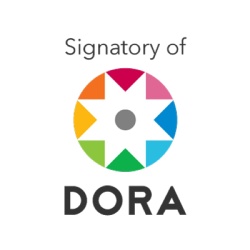The role of satellite TV channels in creating a cultural and social value conflict for Algerian rural children:a field study of a sample of rural families in Tiaret
دور الفضائيات في خلق صراع قيمي اجتماعي وثقافي لدى الطفل الريفي الجزائري: دراسة ميدانية على عينة من الأسر الريفية بمنطقة تيارت
Abstract
This study seeks to ascertain the degree of value conflict (social and cultural) resulting from the Algerian child's use of satellite television channels - from the parents' point of view - where the measure of value conflict was questioned and applied to a sample of its size: 160 families residing in different rural areas of Tiaret State, the study concluded:
The child's daily viewing of satellite television channels occurs during the evening. As a result of watching satellite television channels, the level of educational attainment of children has declined, as has the cultural patterns that these channels broadcast. The degree of value conflict in children is increasing with the increase in the duration of their use of space. Differences in the degree of conflict are attributable to the variability of family type, the educational level of parents. There are no differences in the degree of conflict attributable to the sex (gender) variable and the standard of living of the researched families.
Downloads
References
Organisation mondiale de la santé. (1977). Santé mental et développement psychosocial de l’enfant. Rapport d’un comté OMS. Genève.
- Arabic references in English :
Al-Baroudi, A. (2014). Satellite channels and the value system in the local community. Dar Itrak for Printing, Publishing, and Distribution. Cairo.
Baddawi, A. Z. (1977). Glossary of Social Science Terminology. Lebanon Library for Publishing and Distribution. Lebanon.
Beshewal, N. (2012). Family, school, and television: A study of new patterns of social upbringing. Doctoral thesis, University of Tunis.
Belmihoub, K. (2004). Factors of marital stability: A comparative study on a sample of troubled couples with a proposal for therapeutic programs. Doctoral thesis, Algeria.
Ben Sheikh, A., & others. (1996). Youth in radio and television programs in Arab countries. Tunisian Journal of Communication Sciences, 29.
Ben Zroug, J. (2005). The impact of television on child behavior and values. Studies Journal, 02.
Jaradat, M. (2007). The relationship between parents' education level, family income, and the choice of academic majors by male and female offspring. Journal of Educational Sciences Studies, 01.
Al-Hassani, S. A. (2006). The role of social values in crime prevention. Naif University for Psychological and Social Sciences. Saudi Arabia.
Hamdi, M. A. F. (2017). Crisis of values and youth problems in the era of Arab satellite broadcasting. Osama Publishing and Distribution House. Jordan.
Al-Hawat, A. (1996). Social theory. Open University Publications. Tripoli.
Children's Rights Guide. (2015). Ministry of National Solidarity, Family, and Women's Issues. Algeria.
Al-Ziyoud, M. (2006). Youth and values in a changing world. Dar Al-Shorouk for Publishing and Distribution. Jordan.
Al-Saeed, D. (2013). Television and children: Expected benefits and prohibited negative impacts. Communication in Humanities and Social Sciences, 36.
Al-Sayyid, S. A. H. (1998). Value conflict among youth and its confrontation from the perspective of Islamic education. Arab Thought House. Cairo.
Al-Shal, I. (2003). Satellite dish, internet, and television within the framework of media sociology. Medina Press. Egypt.
Abdel Nabi, E. I. (2014). Sociology of cartoons and the normalization of Arab children. Forum of Knowledge. Lebanon.
Azi, M. F. (2008). Generations and values: An attempt to approach social and political change in Algeria. Doctoral thesis, University of Oran.
Aqlah, A. A. (2009). Conflict between social values and organizational values in educational administration. Dar Al-Hamid. Oman.
Ghaith, A. M. (2006). Dictionary of Sociology. University Knowledge House. Alexandria.
Fouad, A. A. (1981). Rural sociology. Dar Al-Nahda Al-Arabiya. Beirut.
Kazim, A. A. (1993). Social and cultural change in Qatari society. Hajar for Publishing, Distribution, and Advertising. Giza.
Mary, W. (1999). Children and television addiction. National Council for Culture, Arts, and Letters. Kuwait.
Mujahid, M. (2011). Satellite television programs and their impact on the audience - Youth of Oran city as a model. Center for Arab Unity Studies. Lebanon.
Magdi, H. H. N. (2017). Cultural values presented in American films. Annals of Ain Shams Literature. Egypt.
Muawad, M. (2000). The third parent and children - Modern trends in the effects of television on children. Modern Book House. Egypt.
Muftah, M. D. (2003). Glossary of Information Systems and Communication Technology Terms. International House for Publishing and Distribution. Egypt.
Wanjan, S. (2014). Academic achievement between classroom influences and social environment variables. Journal of Social Studies and Research, Al-Wadi University, 04.
Al-Mo'jam Al-Wasit. (1960). Cairo: Arabic Language Academy. Retrieved :05/08/2021. from https://www.almougem.com/search

This work is licensed under a Creative Commons Attribution-NonCommercial 4.0 International License.









